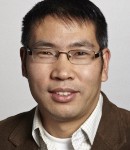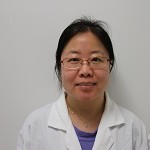 Andrew Stewart, MD, is the Director of the Stewart Lab and the Director of the Diabetes, Obesity and Metabolism Institute. He is also the Irene and Dr. Arthur M. Fishberg Professor of Medicine, Endocrinology, Diabetes and Bone Diseases. Dr. Stewart is a leading authority on human pancreatic beta cell replication and regeneration. His research focuses on understanding and developing novel means for inducing beta cell regeneration. His group was the first to demonstrate that growth factors could drive beta cell replication in vivo in mammals, and also improve glucose control in living animals. He was also the first to carefully define cell cycle control in the rodent and human beta cell, and is actively involved in understanding why human beta cells normally do not replicate. Using gene therapy and small molecule approaches, his team has been able to induce replication in human beta cells, and to reverse diabetes with engineered, rapidly replicating human beta cells in vivo.
Andrew Stewart, MD, is the Director of the Stewart Lab and the Director of the Diabetes, Obesity and Metabolism Institute. He is also the Irene and Dr. Arthur M. Fishberg Professor of Medicine, Endocrinology, Diabetes and Bone Diseases. Dr. Stewart is a leading authority on human pancreatic beta cell replication and regeneration. His research focuses on understanding and developing novel means for inducing beta cell regeneration. His group was the first to demonstrate that growth factors could drive beta cell replication in vivo in mammals, and also improve glucose control in living animals. He was also the first to carefully define cell cycle control in the rodent and human beta cell, and is actively involved in understanding why human beta cells normally do not replicate. Using gene therapy and small molecule approaches, his team has been able to induce replication in human beta cells, and to reverse diabetes with engineered, rapidly replicating human beta cells in vivo.
 Peng Wang, PhD, is a molecular biologist and beta cell biologist. He is particularly interested in identifying the compounds and pathways to drive human beta cell regeneration for diabetes. He performed a 100,000 compound screen, and found one compound, harmine, proved a remarkably effective driver of human beta cell proliferation. He then proceeded to decipher the mechanism of action of harmine, define its target, the kinase DYRK1A. The work was published in Nature Medicine in May 2015 because it is the first example of a small molecule that can induce human beta cells to replicate, an event that has substantial implications for the 30 million people in the US with diabetes, and the 50-80 million more who have metabolic syndrome or pre-diabetes. At present, Dr. Wang is working with drug discovering team to screen and validate next-generation harmine analogues as authentic diabetes therapeutic agents, and to develop novel IP around these next-gen harmine derivatives.
Peng Wang, PhD, is a molecular biologist and beta cell biologist. He is particularly interested in identifying the compounds and pathways to drive human beta cell regeneration for diabetes. He performed a 100,000 compound screen, and found one compound, harmine, proved a remarkably effective driver of human beta cell proliferation. He then proceeded to decipher the mechanism of action of harmine, define its target, the kinase DYRK1A. The work was published in Nature Medicine in May 2015 because it is the first example of a small molecule that can induce human beta cells to replicate, an event that has substantial implications for the 30 million people in the US with diabetes, and the 50-80 million more who have metabolic syndrome or pre-diabetes. At present, Dr. Wang is working with drug discovering team to screen and validate next-generation harmine analogues as authentic diabetes therapeutic agents, and to develop novel IP around these next-gen harmine derivatives.
 Esra Karakose, PhD, has worked on cell-extracellular matrix and cell-cell interaction biology. She has studied integrin signaling in mouse. She has identified the role of PINCH-1 in regulating cell adhesion, cell differentiation, cell survival and apoptosis both during mouse embryonic development and in adult mouse skin. She has also explored the field of regenerative biology by differentiating human embryonic stem cells to pancreatic progenitors. She has contributed to understanding the molecular mechanisms controlling early pancreatic differentiation.
Esra Karakose, PhD, has worked on cell-extracellular matrix and cell-cell interaction biology. She has studied integrin signaling in mouse. She has identified the role of PINCH-1 in regulating cell adhesion, cell differentiation, cell survival and apoptosis both during mouse embryonic development and in adult mouse skin. She has also explored the field of regenerative biology by differentiating human embryonic stem cells to pancreatic progenitors. She has contributed to understanding the molecular mechanisms controlling early pancreatic differentiation.
 Aaron Bender, BA, is an Associate Researcher in the Stewart Lab. Trained in biochemistry, Aaron also uses tools from molecular and cell biology to study signaling and growth pathways in the human pancreatic beta cell. With primary aims of characterizing the beta cell as well as inducing proliferation, he isolates pure populations of cells via FACS, analyzes expression levels of whole transcriptomes and targeted RNAs, and develops viruses to overexpress and knock down genes of interest. Aaron hopes to soon add genomics tools to his repertoire, and he is currently the acting manager of the Human Islet and Adenovirus Core, a subdivision of the Einstein-Mount Sinai Diabetes Research Center.
Aaron Bender, BA, is an Associate Researcher in the Stewart Lab. Trained in biochemistry, Aaron also uses tools from molecular and cell biology to study signaling and growth pathways in the human pancreatic beta cell. With primary aims of characterizing the beta cell as well as inducing proliferation, he isolates pure populations of cells via FACS, analyzes expression levels of whole transcriptomes and targeted RNAs, and develops viruses to overexpress and knock down genes of interest. Aaron hopes to soon add genomics tools to his repertoire, and he is currently the acting manager of the Human Islet and Adenovirus Core, a subdivision of the Einstein-Mount Sinai Diabetes Research Center.
 Laura A. Walker, BS, worked at The Scripps Research Institute in Jupiter, FL after earning her Bachelors in Biology/Biotechnology from Florida Atlantic University. While working as a technician under the training of Scripps’s Howard Petrie, PhD, Laura learned many new skills including IHC and LCM. Now working under the supervision of Dr. Stewart, she is excited to use her biotechnology and histology skills on two major projects. Through modern cloning techniques Laura is investigating the mutations of IPS cells that have undergone CRISPR-Cas induced gene editing. These stem cells will later be used to study human beta-cells. She is also confirming the changes of gene expression observed in human pancreas versus mutated pancreatic tissue via IHC.
Laura A. Walker, BS, worked at The Scripps Research Institute in Jupiter, FL after earning her Bachelors in Biology/Biotechnology from Florida Atlantic University. While working as a technician under the training of Scripps’s Howard Petrie, PhD, Laura learned many new skills including IHC and LCM. Now working under the supervision of Dr. Stewart, she is excited to use her biotechnology and histology skills on two major projects. Through modern cloning techniques Laura is investigating the mutations of IPS cells that have undergone CRISPR-Cas induced gene editing. These stem cells will later be used to study human beta-cells. She is also confirming the changes of gene expression observed in human pancreas versus mutated pancreatic tissue via IHC.
 Hongtao Liu, BS is a lab technician in Dr. Stewart’s lab. She helps the lab researchers to isolate rodent islets, make the constructs, produce the adenovirus, make the Adeno-shRNAs , run western , isolate RNA and perform real-time PCR, staining and provide other techniques. She also helps with routine lab maintenance.
Hongtao Liu, BS is a lab technician in Dr. Stewart’s lab. She helps the lab researchers to isolate rodent islets, make the constructs, produce the adenovirus, make the Adeno-shRNAs , run western , isolate RNA and perform real-time PCR, staining and provide other techniques. She also helps with routine lab maintenance.
